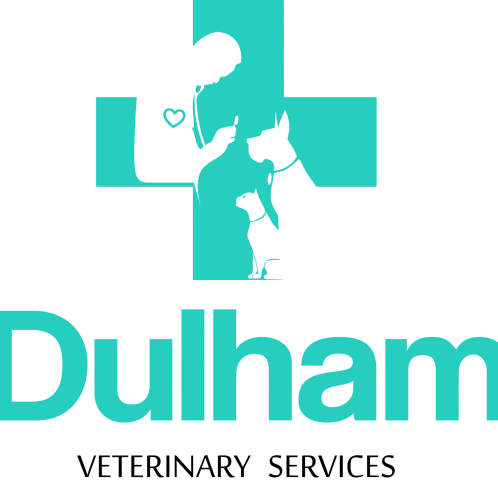Veterinary services play a crucial role in safeguarding the health and well-being of animals. Whether for household pets, farm animals, or wildlife, veterinary medicine encompasses a wide range of treatments and preventive care measures. Understanding the roles of veterinarians, the treatments they offer, and the benefits of veterinary services can help pet owners and animal caregivers make informed decisions about their animals’ health.
The Role of Veterinary Professionals
Veterinarians and their support teams provide comprehensive medical care for animals, ensuring their overall health and quality of life. Their roles include:
- Preventive Care: Routine check-ups, vaccinations, and parasite control to prevent illnesses.
- Diagnosis and Treatment: Identifying diseases and administering treatments, including surgery and medication.
- Emergency and Critical Care: Immediate medical attention for accidents, injuries, or life-threatening conditions.
- Nutritional and Behavioral Counseling: Guidance on diet, exercise, and behavioral issues.
- Surgical and Specialized Care: Procedures such as spaying/neutering, orthopedic surgery, and dental care.
Common Veterinary Treatments
Veterinary medicine covers a broad spectrum of treatments designed to promote and restore animal health. Some of the most common include:
1. Preventive Treatments
- Vaccinations against rabies, distemper, and other diseases
- Flea, tick, and heartworm prevention
- Routine wellness exams
2. Medical Treatments
- Antibiotics for infections
- Pain management for chronic conditions
- Allergy testing and treatment
3. Surgical Procedures
- Spaying and neutering
- Tumor removal
- Emergency surgeries for injuries
4. Dental Care
- Teeth cleaning and scaling
- Treatment for gum disease
- Tooth extractions
5. Specialized Therapies
- Physical therapy for mobility issues
- Chemotherapy for cancer treatment
- Alternative therapies such as acupuncture
RECOMMENDED:
- Deworming vs. Vaccination: Which Should Come First?
- Symptoms of Tick-Borne Diseases in Dogs and Cats
- Cost and Types of Cat Vaccination in Nigeria, 2025: Price & Schedule
The Benefits of Veterinary Services
Investing in veterinary care benefits both animals and their owners in numerous ways:
1. Improved Health and Longevity
Regular veterinary visits help detect potential health issues early, allowing for timely intervention and extending an animal’s lifespan.
2. Disease Prevention
Vaccinations and routine health screenings protect pets from contagious and life-threatening diseases.
3. Better Quality of Life
Addressing pain, nutrition, and behavioral concerns enhances an animal’s overall well-being and happiness.
4. Financial Savings in the Long Run
Preventive care and early treatment can reduce the need for expensive emergency interventions.
5. Public Health Protection
Veterinary care helps control zoonotic diseases (those transmissible between animals and humans), ensuring public safety.
Choosing the Right Veterinary Clinic
When selecting a veterinary clinic, consider the following factors:
- Reputation and Reviews: Look for clinics with positive testimonials and experienced professionals.
- Range of Services: Ensure the clinic offers comprehensive care, from routine check-ups to emergency services.
- Facility Standards: A clean, well-equipped clinic is crucial for quality care.
- Emergency Care Availability: Check if the clinic provides 24/7 emergency services.
The Importance of Veterinary Services for Your Pet’s Health
Veterinary medicine plays an essential role in maintaining animal health and welfare. From preventive care to emergency treatments, veterinarians offer invaluable services that contribute to longer, healthier lives for pets and other animals. Choosing a trusted veterinary clinic, such as Dulham Veterinary Clinic, ensures that your beloved animals receive top-tier medical care tailored to their needs.
Call us now or visit our clinic for expert veterinary services!
Visit Us
No 23 Crown Court Estate 2, Orunbe close , Oniru. Victoria Island, Lagos.
Phone Us
Mail Us
Frequently Asked Questions (FAQs)
1. How often should I take my pet to the vet?
It is recommended to schedule annual wellness exams for healthy pets. However, senior pets or those with existing conditions may require more frequent visits.
2. What vaccinations does my pet need?
Common vaccinations include rabies, distemper, parvovirus, and bordetella for dogs, while cats often receive rabies, feline leukemia, and panleukopenia vaccines.
3. How can I tell if my pet is in pain?
Signs of pain in pets include limping, excessive grooming, decreased appetite, unusual aggression, and reluctance to move or jump. If you notice these symptoms, consult your veterinarian immediately.
4. What should I do in a pet emergency?
If your pet is experiencing difficulty breathing, severe injury, prolonged vomiting, or unresponsiveness, seek emergency veterinary care immediately. Many clinics, including Dulham Veterinary Clinic, offer 24/7 emergency services.
5. Is pet insurance worth it?
Pet insurance can help cover unexpected medical costs, making it a valuable investment for pet owners. It is especially beneficial for emergency treatments, surgeries, and chronic conditions that may require ongoing care.
6. What should I feed my pet for optimal health?
A balanced diet tailored to your pet’s age, breed, and health status is crucial. Consult with your vet for specific dietary recommendations, especially if your pet has allergies or medical conditions.

